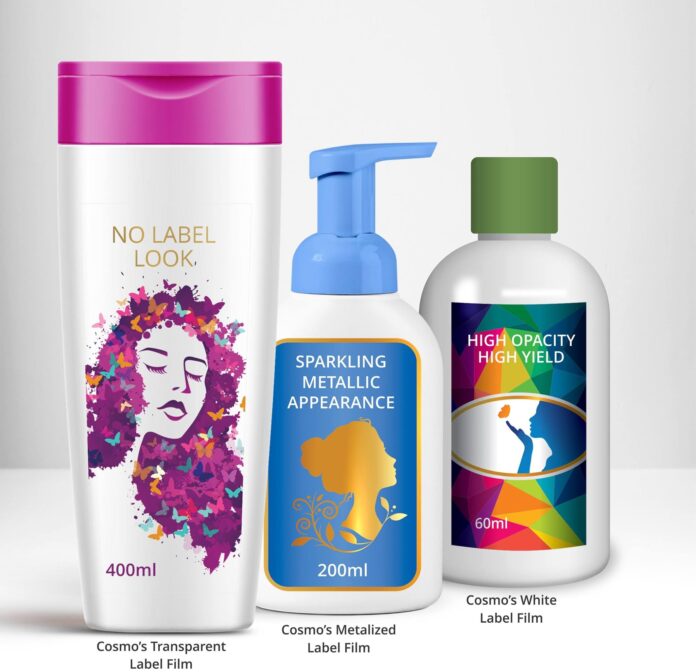Established in 1981, Delhi-headquartered Cosmo Films manufactures specialty films for packaging, lamination and labeling applications, and synthetic paper. Over the years, with the engineering of innovative products and sustainability solutions, the company has partnered in leading F&B and personal care brands and packaging converters.
Its specialty products include heat resistant films, high barrier films, thermal lamination films (including premium lamination films), direct thermal printable films, self-adhesive face stock films, and synthetic paper. Cosmo has manufacturing units in India and Korea and warehousing capabilities in the USA, Europe, Canada and Japan.
High demand amid Covid-19
Plastic film is getting a lot of attention, as consumer awareness of hygiene and safety in packaging increases. Pankaj Poddar, chief executive officer of Cosmo Films, says, “The demand for packaging and label films has been quite high due to increased consumption for packaged foods, liquid soaps, bathing soaps, and hand sanitizers. The increased demand has helped us run the capacity at full potential although we had challenges at the end of March and early April.”

According to Poddar, challenges at the end of March and early April emanate from labor shortages and supply chain constraints. He adds, “However, post-May, most of these challenges have resolved, and the main focus now is to ensure our employee safety at all times. We are keeping our fingers crossed not to have any lockdown announced in the ensuing months.”
Apart from this, he notes the increasing costs for transportation, labor, and other packaging material as well as the cost of maintaining extra hygiene, sanitization and social distancing on employee buses, canteens, shop floors, and offices.
R&D and innovation
Covid-19 has led the global barrier film market to bring new solutions for combating the rising demand for protection against the virus. Poddar explains R & D and innovations at Cosmo film, “We have designed an anti-Covid film awaiting certification. This film can be a breakthrough as it shall have several applications for lamination and other non-food applications.”
Cosmo has several products with sustainability as a USP. Its synthetic paper replaces pulp-based paper to improve label shelf-life, and its mono-material structures (either poly propylene-based or a mix of PP and PE that it claims can be recycled back to their raw form) are used for food packaging. The company has engineered BOPP films to replace BOPET films by providing the desired oxygen barrier and heat resistance. It offers a suitable substitute for aluminum foil in its ultra-high barrier films.
Packaging and sustainability during Covid-19
Before Covid-19, there was a global push to shift to sustainable or recyclable structures comprising polypropylene or polyethylene, from the same olefin family. However, Poddar believes that due to the Covid-19 pandemic, there is a sudden shift in consumer buying behavior. He says, “People would prefer buying packaged items and would probably shift to eCommerce stores to buy their daily essentials, which would favor packaged goods manufacturers. Moreover, with qualities like low transportation costs, better food safety, and enhanced barrier properties, plastics would play a major role in fulfilling consumer requirements.”

Nevertheless, he says the sustainability drive shall only get stronger as uncollected and non-recycled plastic poses several challenges worldwide. “There has been a temporary blip in such efforts due to the Covid pandemic challenges. However, smarter FMCG companies are continuing their journey to sustainability.”
Cosmo Films is digitizing its business, including customer order processing and becoming paperless. In films, the focus is to expand the synthetic paper portfolio, direct thermal printing films, and helping FMCG brands produce recyclable structures. In the chemicals business, it is increasing textile chemicals, polymer additives, and high-end adhesives for industrial and consumer use.









